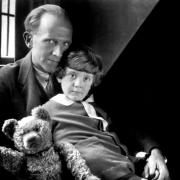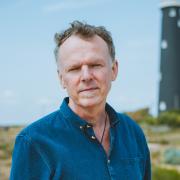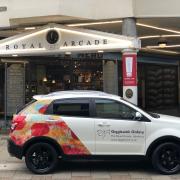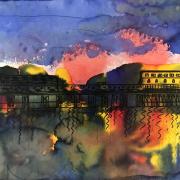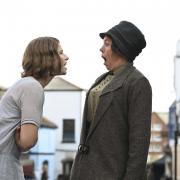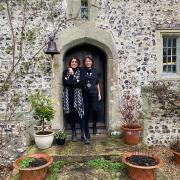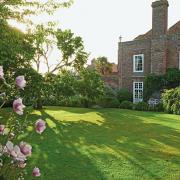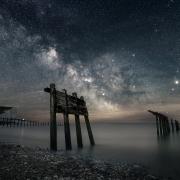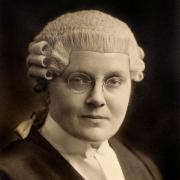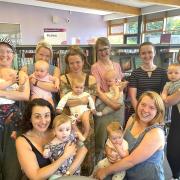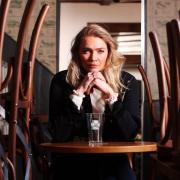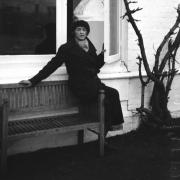Careers in the arts can be extremely competitive. This month, in the first of a series, we meet the producers responsible for the programming of Brighton Dome and Brighton Festival

I spoke to Theatre Producer Orla Flanagan on her last day at the Edinburgh Festival, with the sound of bagpipes in the background. Orla is responsible for programming the theatre output of Brighton Dome and Brighton Festival, which involves a certain amount of scouting for new work. “It’s one of the lovely parts of the job,” she says.
“A lot of what I do is about finding really great work to come to Brighton, and since I came about three years ago I have been focusing on building up the year-round programme, but my work is also about bringing new UK-based and international work to the Festival that is particularly interesting and surprising. It’s a really exciting job.”
Orla’s background is producing: working with writers, directors and performers to create original pieces. “There’s a different rhythm in producing which has been really interesting to learn about. I underestimated the feeling of finding a show and bringing it to an audience, then watching their response.”
As well as providing a venue for existing work, Brighton Dome and Festival commissions new pieces. “When Vanessa Redgrave was Guest Director [of the 2012 Festival] I worked with her on a piece called A World I Loved. It’s great to have that mix of producing and programming because they are quite different things.”
Originally from Dublin, Orla has found it exhilarating to get to know the UK scene: “I feel like over the last few years I have got a really good sense of the UK and the kind of work that’s made here.
“Coming from Ireland, I thought the UK was such a big pond, but then you realise how small the cultural pond is; even internationally, it is quite a small community.”
Orla originally wanted to be an actor and always knew she wanted to work in drama. She studied English and Philosophy at University College Dublin and, after losing out on a starring role in a college production to top Irish actress Amy Huberman (Bridesmaids star Chris O’Dowd was another member of the ‘set’), she realised her talent lay backstage. “I tried directing and that went really well, and I also knew I was a good organiser. It has taken a while, but you navigate your way through and producing is where I have found my place.”
At 21, she got a job in the Abbey Theatre, working in the script department with exemplary writers, including the dramaturg Jocelyn Clark, who became something of a mentor. “He treats a play like a jigsaw puzzle and he can solve it like no-one else can. He really encouraged me to learn about dramaturgy and to be critical about work, and how to express that.”
In 2008 she went to Washington DC for a year on a Fulbright scholarship, where she spent 10 months on an applied arts management programme at the Kennedy Centre.
She has found it invaluable to ask others for advice: “People think of the theatrical community as being quite difficult – there’s that idea of the diva – but I have found it to be quite the opposite. In Edinburgh I have seen shows about politics, sexuality, life, reflected all the time in different, beautiful ways. I think that’s why people can be quite generous – they’re tuned into life all the time.”
Brighton Festival is obviously an annual highlight (although it can be “quite scary”). “Artists coming from all over the world and being so glad to be in this lovely town...that’s what keeps you energised. We are so lucky as a festival to have Brighton as a venue because it’s a place people really want to be.”
Having found her own niche, Orla is enthusiastic about helping others find their place in the arts: “I have been doing some artist development work and it has been exciting to bring people with me on that journey.” Scratch performances at regular event The Works celebrates the Dome’s multi-disciplinary staging by blurring the boundaries between theatre, music and dance.
Orla’s project Kaleidoscope at this year’s festival saw the organisation elicit applications by developing artists in all art forms, before selecting seven artists to spend the whole festival “feasting” on the work. “I have got a lot of satisfaction from seeing them potentially partner with one another on future projects and even providing support for each other in the future. It was very much a pilot programme but we are hoping to build on it for the future.”
Orla’s role, and that of her colleague Laura, is supported by a pilot producing programme, the Esmee Fairbarn Foundation. “That’s been brilliant in allowing us to establish a pretty innovative programme at the Dome and in terms of allowing our personal professional development.”
Laura Ducceschi is the organisation’s Music Producer, working on staging performances that range from contemporary classical genres including jazz, experimental and rock. She is also interested in installation work that straddles the boundary between visual art and live performance (as seen in last year’s project Earsthetic). Like Orla, she works on both the year-round, in-house programme, which is “less about the commercial industry, the focus is always on the level of the art”, and Brighton Festival.
Laura’s career in music began at the age of four as a cello player, “so it’s always been in my life” and she went to university to study music before leaving halfway through to pursue other projects. “Strangely enough I found that studying music, which I had thought would be very liberal, exploring all sorts of genres, was very straight. It wasn’t quite working for me.”
She played in a band and started work at a small independent label when she was 20. It took a while for her to find her path in music, and after six years away from the industry she came back “with more clarity than I had ever had about music. It was quite helpful stepping out [of the music industry]. I started working voluntarily with a music manager in London and then I started managing a couple of artists myself.”
Newly arrived in Brighton, Laura started a club night with a friend, staging about three bands a week. As it grew in stature, they effectively became a management and promotions agency, which was her start in live music.
Laura’s tastes are very eclectic, which she says is necessary for her work as a programmer. “Personally, my calling card is the crossover between music and visual art. It tends to be a bit less commercial, so you’re not going to see it on the X Factor. I am very sonically led, but I also like to be visually intoxicated by things. I am interested in creating other worlds and giving the audience and myself other experiences.
“Working with your heroes is quite exciting, but I don’t mean that in a sycophantic way, I mean in the sense of working with people who are so true and genuine in what they do: people like Patti Smith.”
The other element of her role is the creation of new work: “I have always worked in quite a curatorial way and now I am devising work as well.” She describes a stand-out project: “I had a crazy dream one night – a sonic dream – about the bassline of Atmosphere by Joy Division. It was overwhelmingly intense and it was so big in my head that I thought ‘how could you possibly communicate that?’ I devised a piece of work called Life Transition which is inspired by Joy Division. We created a massive cube and put a 30-piece orchestra inside it along with the electronic artists. We had four projectors beaming new visuals onto the sides of the space. The audience entered to find a dark space, with the cube alive in the middle of it. It was very scary because we were messing with Joy Division, which is sacred. I spoke to the remaining members and got their blessing, and Peter Saville spent a day with me challenging it, which really helped me with the narrative. It’s gone on to travel around the world, including the Sydney Opera House. Sitting there thinking ‘From that ridiculous dream…’ was a wow moment for me.”
Laura’s advice: “Be extremely bold in your ideas and your thinking. It can be quite difficult to break into the arts world, almost as difficult as making it as an artist, so I think what can be quite attractive to an employer is someone who is just doing it. Just start doing it on whatever scale that is, because you will learn faster than you could ever have imagined.”
--------------------------------------------------
Read on
• Meeting Hurstpierpoint furniture maker Mark Heeler
• Sussex musician Sarah Skinner is Instrumentalist of the Year
• The Barton family on their work at Grassington Farm producing free range, organic eggs




